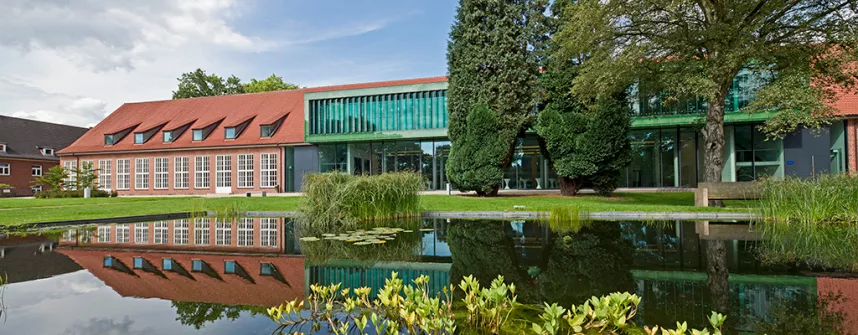Binyam Mogessie: The innovator in infertility research had his start at Jacobs University
August 26, 2021
From Addis Ababa to New Haven, Binyam Mogessie has scaled through many different stages to reach the pinnacle of his career. For the Ethiopian, it all began with his studies at a renowned University in northern Bremen, which paved the way for many research opportunities all over Europe, and now the United States. His research passion lies within understanding the complexities of egg fertilization, in order to tackle the challenges families face with infertility.
, Binyam Mogessie credits Jacobs University for enabling him to gain access to elite research institutions and start his career in the life sciences (picture source: Binyam Mogessie)Binyam Mogessie began his studies at Jacobs University in 2004, receiving a unique opportunity to study Biochemistry and Cell Biology under outstanding professors; opening a path, he says, that was not available to him in Ethiopia. Mogessie often references his alma mater as defining factor in enabling him to start his career in the life sciences. As a son of a scientist in Addis Ababa, Mogessie was exposed to biology early on, but had it not been for the admission he received to study at Jacobs University, he would not have the hands-on training in cutting edge research that kickstarted his career. “Jacobs University leveled the playing field for myself and many other students who had less opportunities at school and gave us the mechanisms to make it far in STEM” explained Mogessie when asked about what makes his alma mater so special.
After a decade of research in the reproductive biology field, Mogessie fondly remembers his time in the laboratories at Jacobs University, working under the mentorship of Professors including Sebastian Springer and Klaudia Brix. Thanks to his experience at Jacobs University, Mogessie has gone on to conduct research at elite institutions such as the MRC-LMB in Cambridge and the Max Planck Institute for Biophysical Chemistry in Göttingen, having had a unique advantage of already working with state-of-the-art research technologies undergraduate students rarely have access to.
, Binyam Mogessie’s research team attempts to understand how eggs are produced and how the human genome is organized and distributed within them (picture source: Binyam Mogessie).Today, Mogessie’s research seeks to answer fundamental questions concerning human infertility, the causes of which surprisingly remain a mystery in biology. He aims to understand how eggs are produced and how the human genome is organized and distributed within them: Errors in this process are a leading cause of miscarriages and intellectual disabilities. Research shows that even when healthy eggs are fertilized by healthy sperm, genome distribution errors of unexplained origins can lead to human embryo deaths and pregnancy failures. By understanding the cellular processes that govern genome organization and distribution in eggs and embryos, Mogessie will come much closer to finding the answers many clinicians are searching for.
, The image features F-actin structures inside the nucleus of a mouse oocyte. Mogessie’s team discovered polymers of the Actin protein in the nucleus of mammalian egg progenitor oocytes that have potential novel functions in genome organization and distribution (relevant literature: Scheffler et al,.bioRxiv, 2020), (picture source: Binyam Mogessie).While Binyam Mogessie is currently carrying out his research at the University of Bristol, he has accepted a professorship to establish his laboratory at Yale University in the summer of 2022. “Yale has a world-leading group of researchers who have made seminal discoveries in areas of genome biology and reproductive sciences with whom I can collaborate to advance our cell biological studies of infertility to population level genetic causes of miscarriages,” he said. Once he arrives in New Haven, he hopes to be able to give back to his alma mater by recruiting student interns to his laboratory. “The internship experience students get in this small window of research can be inspiring, and I would be happy to give them this opportunity, as the internship component of my undergraduate studies at Jacobs University was also instrumental in my decision to pursue a PhD,” he explained.
This text is part of the series "Faces of Jacobs," in which Jacobs University introduces students, alumni, professors, and staff. Further episodes can be found at www.jacobs-university.de/faces.
